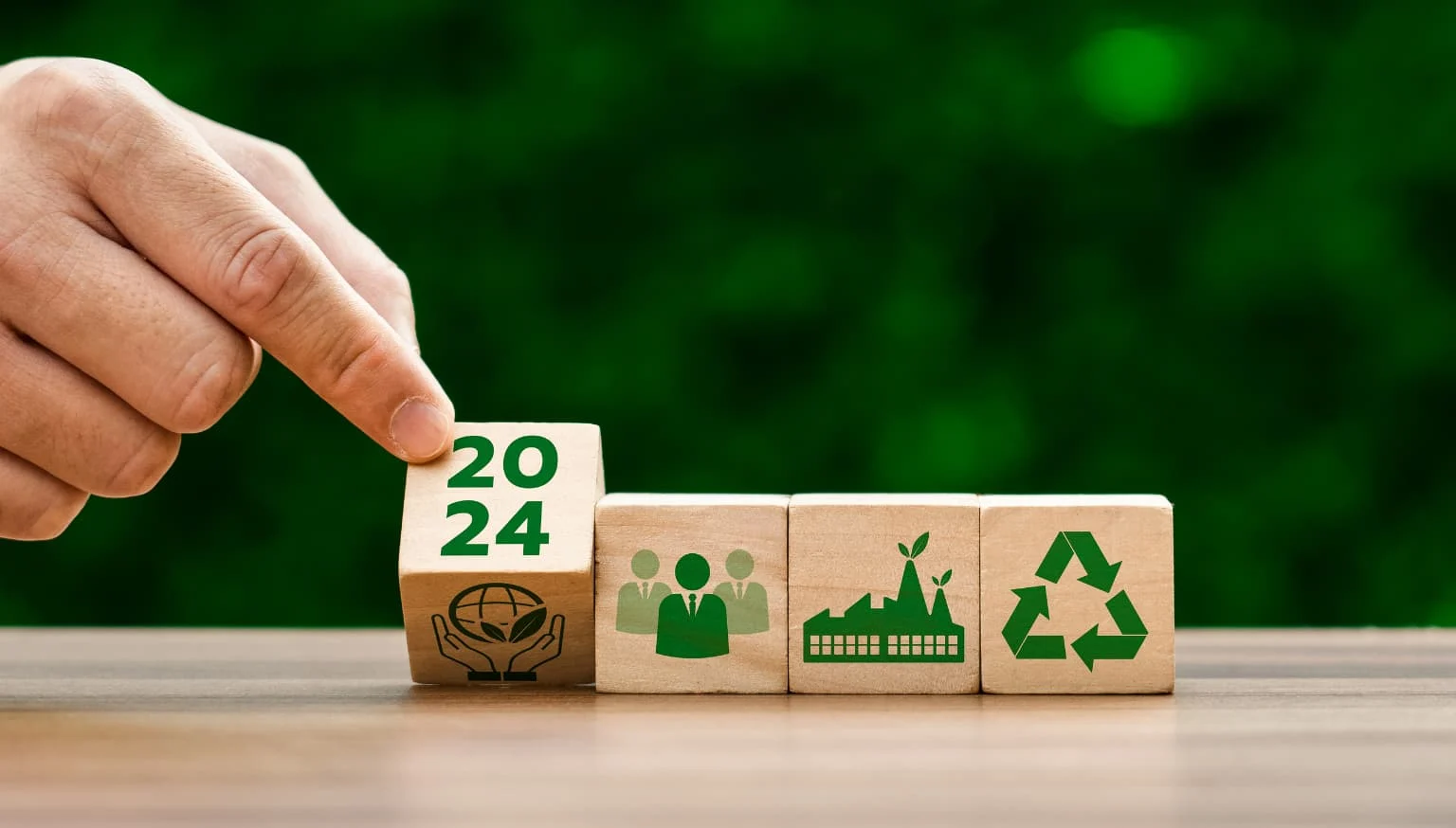In recent years, government, private industry, and individual consumers across the globe have realized the need for more sustainable agricultural practices.
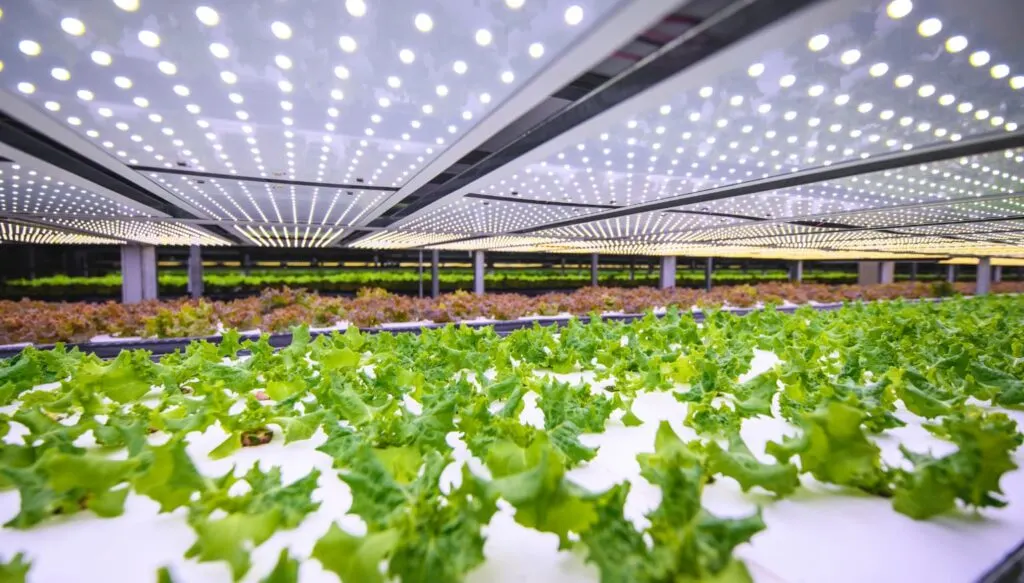
Without adequate traceability, downstream members of the supply chain and individual consumers have no way of knowing whether foods were actually grown using green practices. Enter blockchain technology, the key cog in the agriculture industry’s green revolution.
The Need for Sustainable Agricultural Practices
Modern food production techniques have significantly boosted total yields, but they have also created environmental and economic challenges.
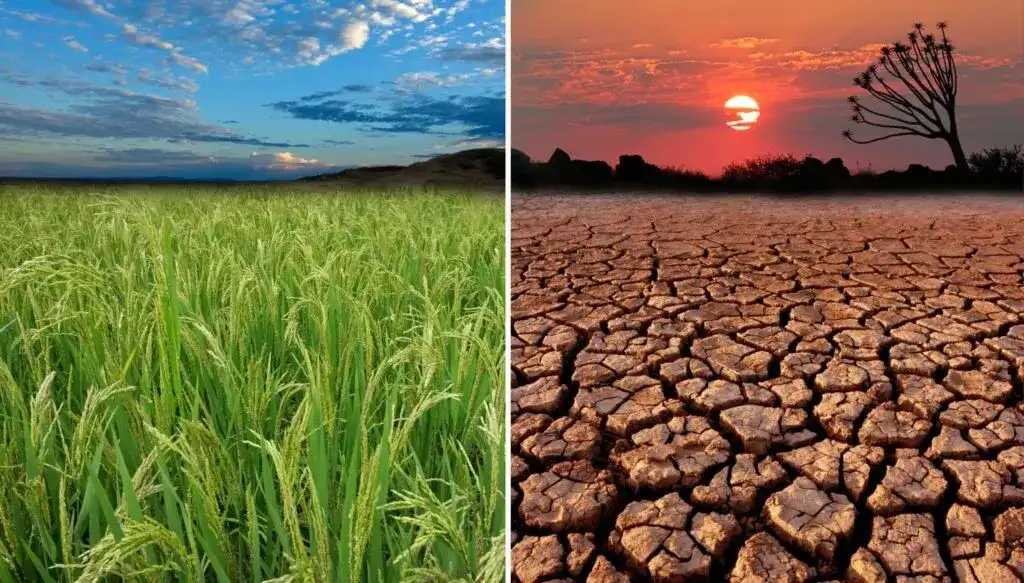
Most notably, researchers report that up to 40% of all soils globally are “moderately or severely degraded.” At the current pace, the figure could rise to 90% by 2050, largely due to urbanization, over-cultivation, overgrazing, and deforestation.
Other major concerns include chemical runoffs of pesticides and herbicides, as well as water scarcity. Solving these challenges while simultaneously alleviating the economic pressures on farmers represents the key goal of the green revolution.
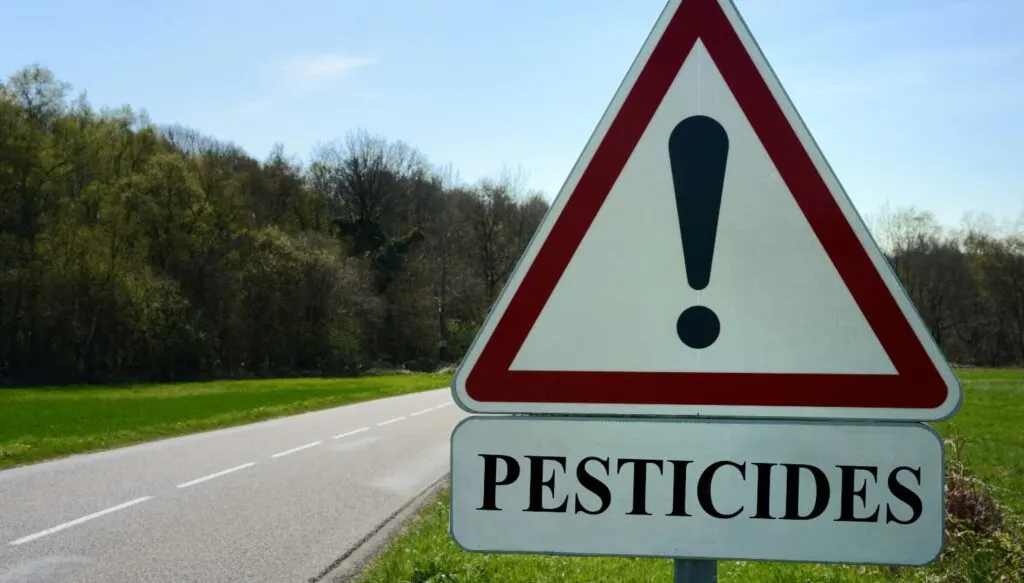
Adopting sustainable agriculture will yield long-term benefits for both the environment and the economy. These principles promote resource conservation and reduce pollution while also increasing biodiversity.
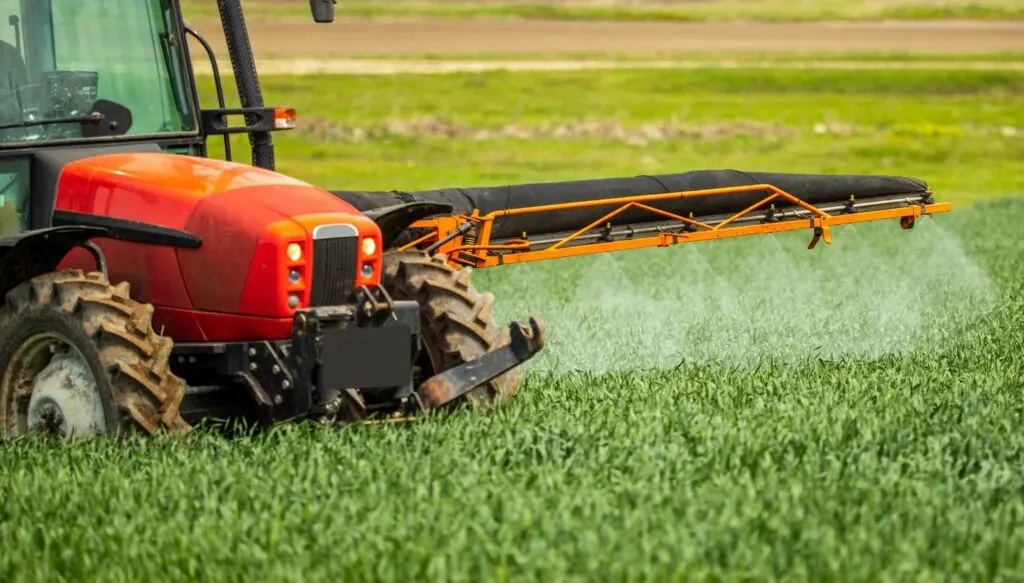
Economically, sustainable agriculture promotes the resilience of farming communities by ensuring fair prices and reducing dependencies on volatile markets and intermediaries.
Understanding Blockchain Technology
Blockchain is a decentralized ledger that records transactions across multiple computers in a way that ensures the data remains secure, transparent, and immutable. Once you record a transaction, it cannot be altered or deleted. As such, the data provides a reliable and verifiable record, which promotes better transparency.

Since no single entity controls the blockchain, you don’t have to worry about the data being manipulated or deleted. Additionally, all participants in a blockchain network can view the recorded transactions.
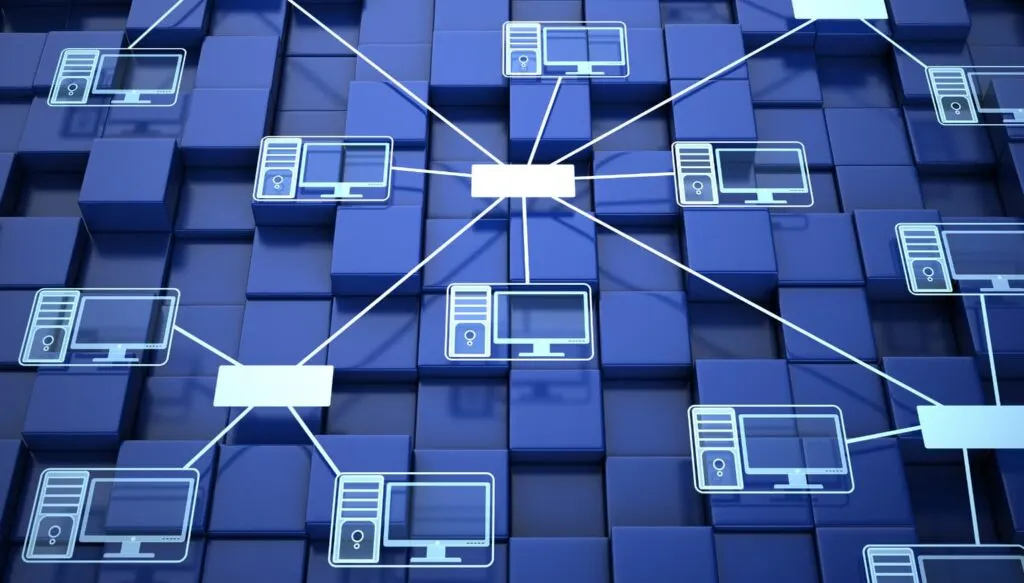
For instance, if you document food transactions with members of your supply chain, all participants can see every trade, allowing them to trace the origins of products back to their sources.
Blockchain’s Role in Enhancing Agricultural Sustainability
Many members of the food industry are excited about blockchain’s ability to promote better transparency. By tracking and tracing food products from farm to table, you can ensure that food products are authentic and of adequate quality.
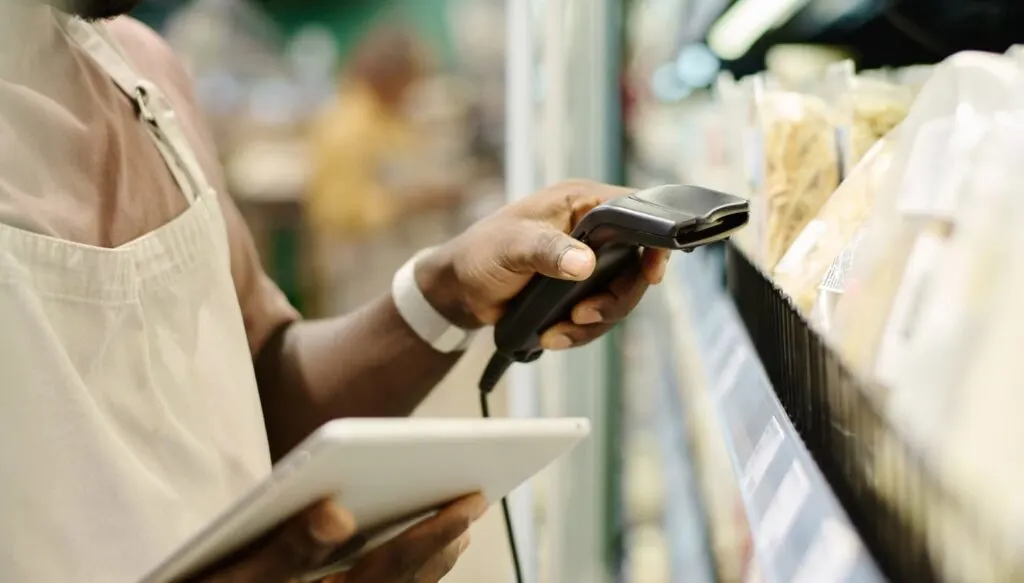
Consumers can identify where food came from, how it was produced, and the journey it took to their plate.
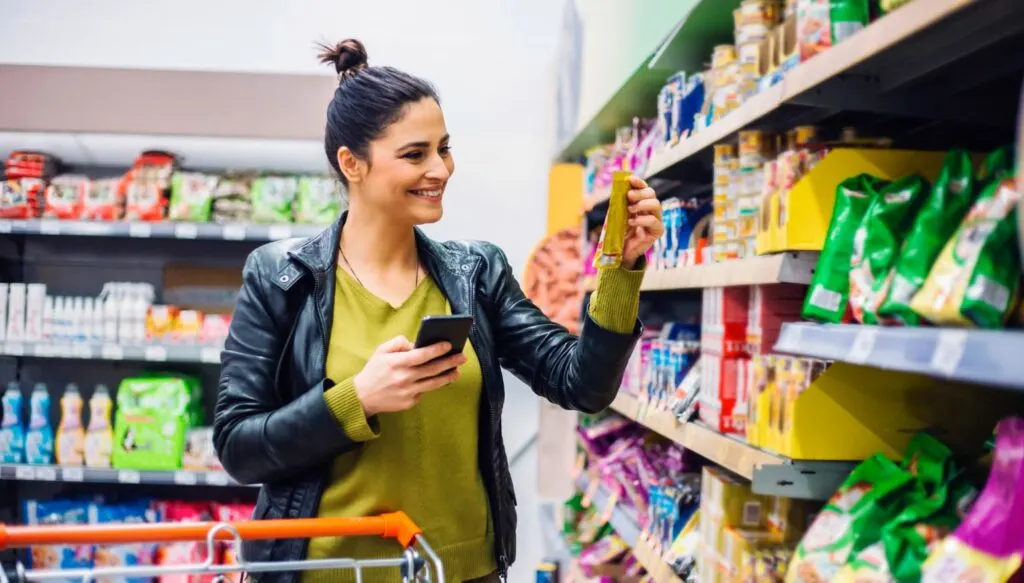
Fraud in organic and fair-trade certifications remains an ongoing issue that erodes consumer trust. With blockchain, consumers, retailers, and other downstream members of the supply chain can be confident that their organic, fair trade, and sustainably produced goods are indeed greener than traditional alternatives.
Benefits of Blockchain in Sustainable Agriculture
By incorporating blockchain technology into your agricultural supply chain, you can unlock benefits such as:
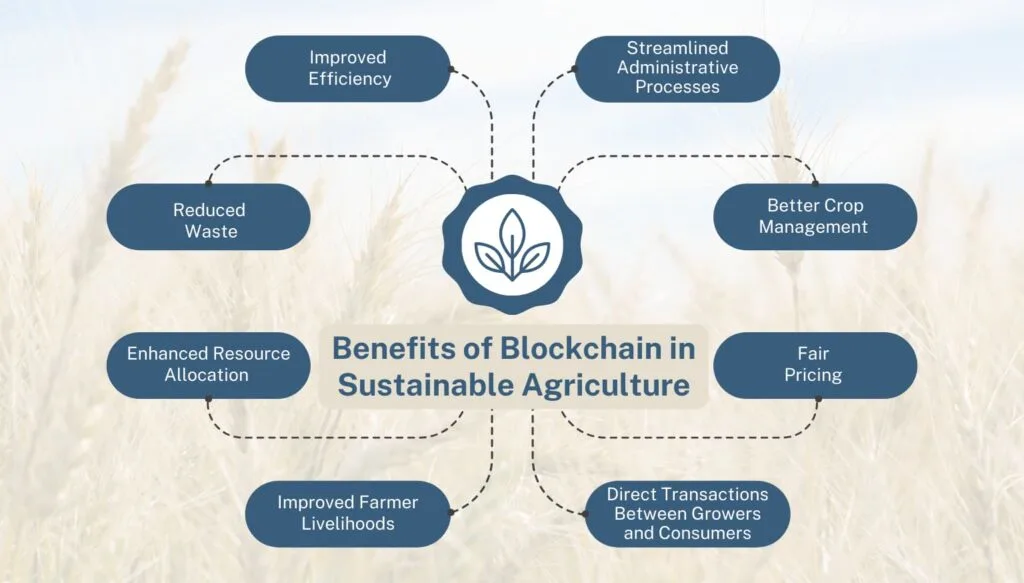
Improved Efficiency
Blockchain offers faster, more efficient tracing capabilities than traditional tracking solutions. You’ll save time and reduce labor costs while making your entire supply chain nimbler.
Streamlined Administrative Processes
Through blockchain technology, you can more easily track critical food product data and tap into this information to support various administrative processes.
For instance, if there’s a safety concern about a product, you can identify where it originated from and issue a targeted recall sooner than you would have been able to do using traditional technologies.
Reduced Waste
Integrating blockchain insights into your overall supply chain management strategy can reduce waste and lower the risk of food spoilage. Cutting back on waste will promote better profitability and reduce your environmental impact.
Better Crop Management
Cumulatively, the insights gleaned from blockchain will promote better crop management practices. You can make informed decisions about what to grow, how much to produce, when to rotate fields, etc.
Enhanced Resource Allocation
Green agriculture means cutting back on water, fertilizer, and other resource waste. With the data provided by blockchain, you’ll be better equipped to allocate your resources efficiently.
Improved Farmer Livelihoods
Farmers will be one of the primary beneficiaries of the green revolution. They will have better control over their crops and benefit from fair pricing.
Direct Transactions Between Growers and Consumers
Additionally, blockchain technology can help reduce the number of intermediaries between consumers and farmers. Over time, the shift will give growers the opportunity to sell directly to consumers, which can increase profitability.
Fair Pricing
Transparency across the entire food supply chain leads to fair pricing. Farmers will face less pressure to undercut one another, which will improve their margins and alleviate long-standing economic pressures.
How Blockchain Fits into Today’s Food Industry
A recent study suggests that using blockchain traceability data to issue recalls can reduce recall-related food waste by as much as 80%.
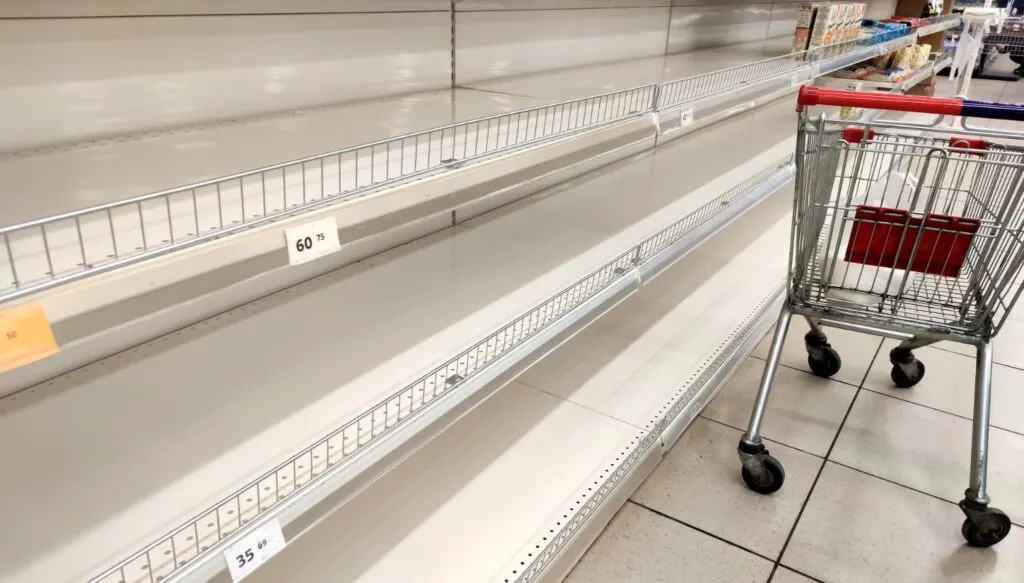
Expediting recalls and increasing safety officials’ ability to track down contaminated food also helps to better protect consumers. The faster retailers can remove tainted products from store shelves, the lower the risk to public health.
The Future of Blockchain in Sustainable Agriculture
Blockchain technology has already solidified its place in the future of green agriculture. Emerging applications include integrating the tech with Internet of Things (IoT) devices to promote real-time monitoring and using smart contracts to enforce sustainable farming practices.
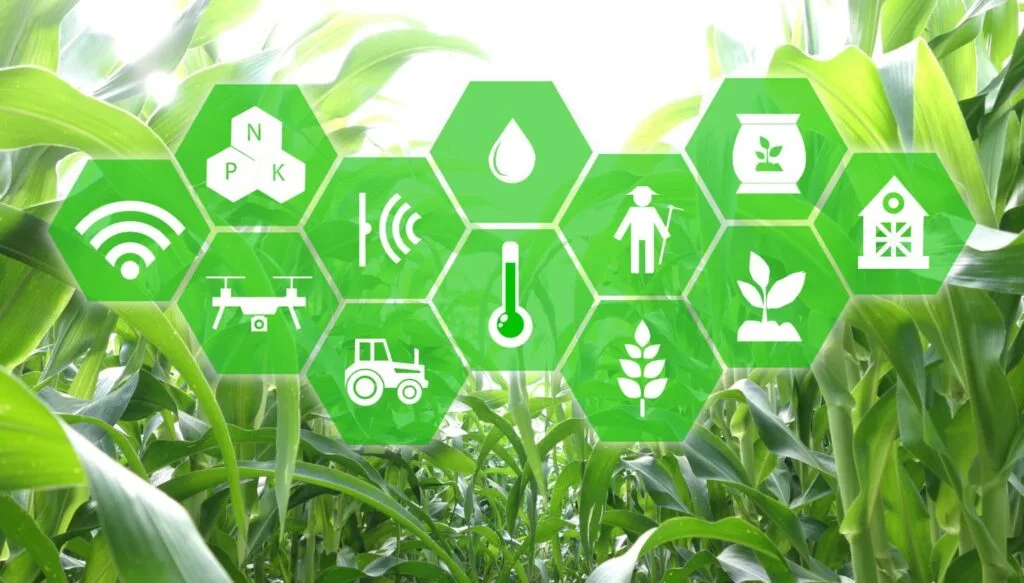
Looking ahead, governments must enact supportive policies and regulatory frameworks to encourage growers to adopt blockchain. This technology has a bright future, but there is still much work to be done to achieve a green agricultural industry.
Pramod Sajja, CEO & President at Paramount Software Solutions (farmtoplate.io).
